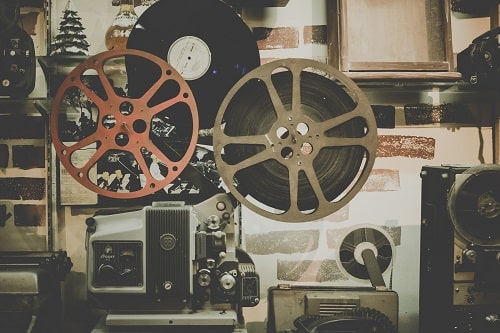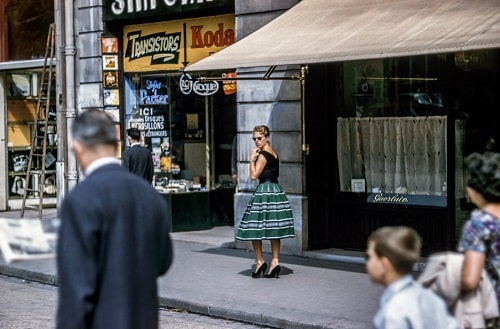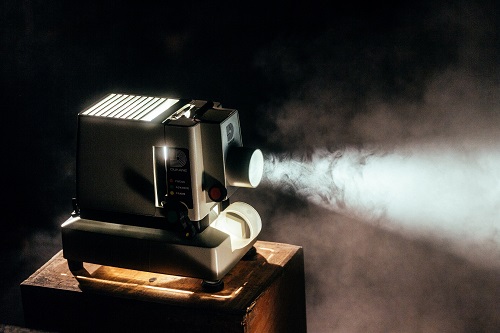Greta Gerwig’s Barbie movie has been a topic of discussion since it was announced. The movie, which was released this summer, has been described as a feminist take on the iconic doll. Gerwig, who is known for her work on films like Lady Bird and Little Women, has been praised for her ability to bring complex female characters to the screen.
The Barbie doll has been a controversial figure since its creation in 1959. Some argue that the doll promotes unrealistic beauty standards and reinforces gender stereotypes. Gerwig’s Barbie movie aims to address these issues by presenting a more realistic and empowering version of the doll. The movie has already generated a lot of buzz, with many people curious to see how Gerwig has handled such a beloved and controversial character.
Barbie’s Cultural Impact
Barbie has been a cultural icon for over six decades. She has been a role model for girls and women, inspiring them to dream big and achieve their goals. However, Barbie has also been subject to criticism for promoting an unrealistic standard of beauty and perpetuating gender stereotypes.
Greta Gerwig’s Barbie movie explores these issues and more. Through on-the-nose commentary, the film manages to be an exploration of Barbie’s cultural impact—good, bad, and in-between. It highlights the importance of representation and the need for diversity in media.
Barbie has been a source of controversy since her creation in 1959. Her unrealistic body proportions have been criticized for promoting an unattainable standard of beauty. However, Barbie has also been praised for her ability to inspire girls to pursue their dreams and break gender barriers.
The Barbie movie takes a nuanced approach to these issues. It acknowledges the criticisms of Barbie’s body image but also shows the potential for Barbie to be a progressive icon. The film’s protagonist, a Barbie who discovers that she is a toy, challenges gender norms and stereotypes and shows that girls can be anything they want to be.
Overall, Barbie’s cultural impact is complex and multifaceted. The Barbie movie explores these issues in a thoughtful and thought-provoking way, highlighting the importance of representation and diversity in media.
The Making of Barbie Movie
Casting
Greta Gerwig’s Barbie movie features a star-studded cast, including Margot Robbie as Barbie, Ryan Gosling as Ken, and Emma Stone as Skipper. The director handpicked the actors, stating that she wanted “people who could bring depth and nuance to their performances.”
Gerwig’s decision to cast Robbie as Barbie was met with some criticism, as the actress is known for her bombshell roles. However, Gerwig defended her choice, saying that Robbie was the perfect fit for the role. “Margot has this incredible ability to be both glamorous and vulnerable at the same time,” she said in an interview with The New York Times.
Production Design
The production design of Barbie movie is one of its most striking features. The movie’s sets are visually dazzling, with bright colors and intricate details. The team behind the movie’s production design embraced the challenge of bringing Barbie’s world to life.
The movie features two distinct worlds: Barbieland and the real world. The production team had to create sets that were both fantastical and realistic. To accomplish this, they used a combination of practical and digital effects.
The team also had to create a wardrobe that was both true to Barbie’s iconic style and appropriate for the real world. Costume designer Jacqueline Durran worked closely with Gerwig to create a wardrobe that was both whimsical and practical. The result is a wardrobe that is both stylish and functional, with outfits that can be worn in both Barbieland and the real world.
Critical Analysis of Barbie Movie
Greta Gerwig’s Barbie movie has been praised for its feminist themes, visual aesthetics, and narrative structure. In this section, we will analyze the movie in more detail, focusing on these three aspects.
Narrative Structure
The narrative structure of the movie is quite unique and innovative. The story follows Barbie, a doll living in a perfect world, who is suddenly transported to the real world. This transition from the perfect world to reality is handled exceptionally well, with the narrative structure helping to convey the message of the movie. The story is told in a non-linear way, with flashbacks and flash-forwards used to great effect. This helps to keep the audience engaged and interested in the story.
Visual Aesthetics
The visual aesthetics of the movie are stunning. The use of bright colors and bold designs is eye-catching and visually appealing. The movie is set in both the perfect world and the real world, and the contrast between the two is handled well. The perfect world is portrayed as a utopia, with everything bright and shiny, while the real world is portrayed as gritty and realistic. The use of CGI is also impressive, with the Barbie doll being brought to life in a way that is both realistic and visually stunning.
Feminist Themes
The feminist themes of the movie are perhaps its strongest aspect. The movie does an excellent job of exposing how damaging patriarchal ideology is to society. While the film obviously appeals to women, it is also a powerful statement for men. The movie portrays Barbie as a strong, independent woman who is capable of achieving anything she sets her mind to. This is a powerful message for young girls who may be struggling to find their place in the world.
In conclusion, Greta Gerwig’s Barbie movie is a powerful and thought-provoking film that is well worth watching. The narrative structure, visual aesthetics, and feminist themes are all handled exceptionally well, making this a movie that will stay with you long after the credits have rolled.
Public Response
Greta Gerwig’s Barbie movie has received a lot of attention since its release. While some people have praised the movie for its feminist themes and strong performances, others have criticized it for being too political or not faithful enough to the original Barbie brand.
One of the most talked-about aspects of the movie is its feminist message. Many critics have praised Gerwig for taking on such a traditionally “girly” franchise and turning it into a vehicle for female empowerment. Some have also noted that the movie’s diverse cast and emphasis on female friendship help to challenge traditional gender roles.
However, not everyone has been on board with the movie’s feminist themes. Some critics have argued that Gerwig’s message is too heavy-handed and political, and that it detracts from the fun and whimsy of the original Barbie brand. Others have criticized the movie for not being “feminist enough,” arguing that it still relies on traditional beauty standards and reinforces gender stereotypes.
Despite these criticisms, the movie has been a box office success, grossing over a billion dollars worldwide. Many fans have praised the movie for its humor, heart, and positive message. Some have also noted that the movie’s strong performances, particularly from lead actress Margot Robbie, help to elevate the material and make it more than just a “kids’ movie.”
Overall, the public response to Gerwig’s Barbie movie has been mixed. While some people have praised it for its feminist themes and positive message, others have criticized it for being too political or not faithful enough to the original Barbie brand. Regardless of one’s opinion on the movie, it is clear that it has sparked a lot of conversation and debate, and has helped to push the boundaries of what a “Barbie movie” can be.
Conclusion
Greta Gerwig’s Barbie movie has exceeded expectations and has been widely praised for its feminist themes, humor, and emotional depth. The film has been a box office success, breaking records and winning over audiences with its modern take on the classic doll.
Gerwig’s decision to cast Margot Robbie as Barbie was a stroke of genius, as Robbie brings a natural charm and charisma to the role. The supporting cast, including Emma Stone, Ryan Gosling, and Awkwafina, also give standout performances and help to elevate the film.
The movie’s ending has been a topic of discussion and analysis, with Gerwig herself explaining the final line as a mic drop joke that also carries emotional weight. The film’s exploration of identity and the pressure to conform to societal standards is a powerful message that resonates with audiences of all ages.
Overall, Greta Gerwig’s Barbie movie is a triumph of storytelling and filmmaking. It is a must-see for anyone who loves a good coming-of-age story, and it proves that even a toy as iconic as Barbie can be reimagined in a way that is fresh, relevant, and inspiring.



 RELATED POSTS
RELATED POSTS





0 Comments